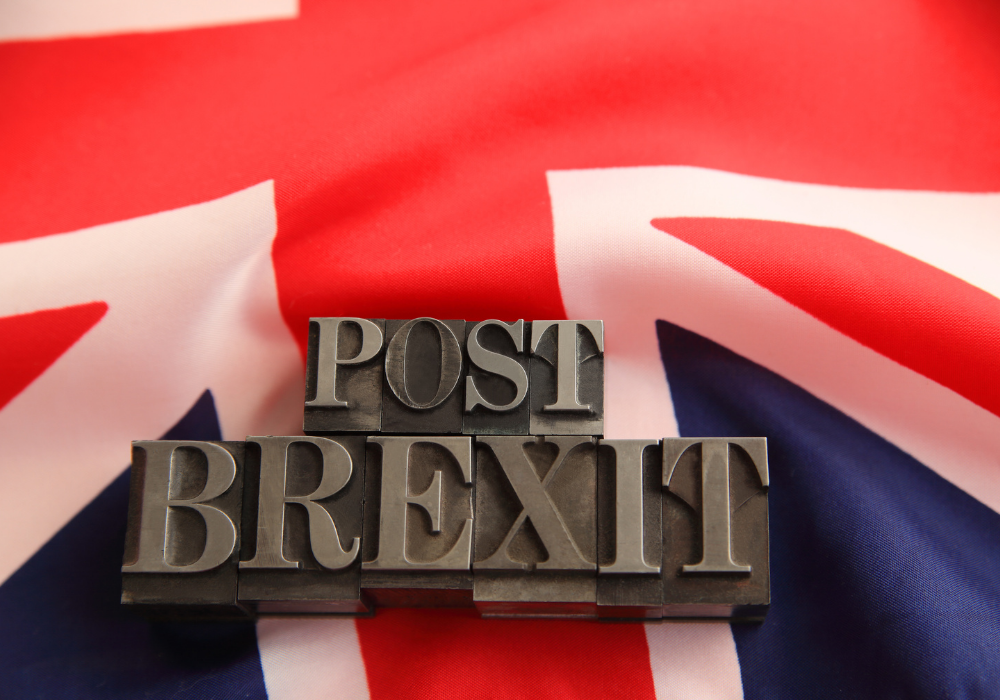
By Mike O’Hara, A-Team Special Correspondent.
It’s now almost four months since the UK exited the EU, and from a trading and market infrastructure perspective, a clearer picture of the post-Brexit landscape is starting to emerge, although there are still many uncertainties that lie ahead.
How have market participants, venue operators and their supporting ecosystem of vendors and infrastructure providers prepared for this changing environment, and how have things played out since the transition? What questions still remain to be answered? What might the UK and European trading and clearing infrastructure landscape look like in the future, and what are the implications for firms as they adapt?Relocations and migrations
Given that the UK is now classed as a ‘third country’ under EU law, one of the most significant impacts of Brexit has been the growing number of banks and other financial institutions, including Goldman Sachs, JPMorgan, Citigroup and BNP Paribas, steadily moving their trading centres from London to European financial capitals such as Amsterdam, Paris and Frankfurt.
Andrea Enria, Chair of the Supervisory Board of the ECB, speaking in February 2021, confirmed that international banks intended to move a total of around €1.2 trillion worth of assets to institutions supervised at the European level. He added that European-headquartered banks also planned to move a substantial amount of their capital markets business from the UK to the EU. But it remains to be seen how much physical relocation of staff there will be.
“I don’t think there’s been that much change in where the people who are actually doing the business are based,” says Mark Montgomery, Head of Strategy and Business Development at big xyt, the data analytics company. “You see stories about big banks shifting their staff, but I’m not sure that it’s happened in a massive way just yet, it may be that they want to look at this over time. The banks might have to shift collateral in order to technically operate from Europe, but we’ve seen over the last year, with people working remotely, that with technology it really doesn’t matter where you sit.”
UK-based exchanges and trading venues have also had to make substantial changes to their business operations in the run-up to Brexit, with a number of Multilateral Trading Facilities (MTFs), including Aquis Exchange, Cboe Europe, Turquoise and Sigma X, setting up new entities in continental European locations to satisfy regulatory obligations around who can trade what, and from where.All of this is happening against the backdrop of other major exchange moves and data centre relocations in UK, Europe and elsewhere. London Stock Exchange Group (LSEG) for example, following its recent acquisition of Refinitiv, plans to migrate its UK trading infrastructure from LSEG’s current facility in Earl Street in the City of London to TeleHouse in Docklands by 2022. EuroNext, which acquired LSEG’s Borsa Italiana business late last year, is also reportedly considering moving all of its trading infrastructure from the ICE data centre in Basildon to Bergamo in Italy. (In the US, both NYSE and Nasdaq have warned that they will have no qualms about moving away from New Jersey if the state implements a proposed financial transaction tax, and could potentially relocate to Illinois or another ‘financial friendly’ state.)
Operations versus jurisdiction
To keep Brexit disruption to a minimum, many of the recently established European MTFs, while being regulated under EU jurisdiction, are continuing to operate out of data centres located in UK. Cboe Europe for example, now operates two equity trading venues: Cboe UK, which is regulated by the UK’s FCA; and Cboe NL, regulated by the Dutch AFM. Both of these are hosted in Equinix’s LD4 facility in Slough.
“We built an entirely separate exchange platform for Cboe NL because we wanted to avoid any potential contagion risk across jurisdiction of any technical failures that, as we know, happen from time to time,” says David Howson, EVP, President, Europe and Asia Pacific, Cboe Global Markets. “Operationally, it’s been a very smooth transition. For us, that meant staffing up appropriately in the Netherlands with trade desks, surveillance, technology oversight, risk, compliance, and all the other functions you need for an exchange to exist and run day to day in the Netherlands.”
Other exchanges, venues and trading platforms are operating similar models, which means that their clients and member firms can still access both European and UK markets through a single connection.
All of this is possible because of existing provisions within MiFID for outsourcing of goods and services to locations outside the EU, which means that – for now at least – exchanges can continue to operate under their existing technology footprint, regardless of asset class. Tradeweb is one example of a fixed income, derivatives and ETF electronic trading platform that has made appropriate preparations.
“In the run up to Brexit, we literally replicated all of the business operations that we have in the UK. So not just the MTF, but also the OTF (Organised Trading Facility) and the APA (Approved Publication Arrangement),” says Jennifer Keser, Managing Director, Head of Regulation & Market Structure at Tradeweb. “All of those services are now also available from Amsterdam. That facilitates ease of access for our EU onshore clients to continue seamlessly trading all of the products that they may have previously accessed via our UK entities.”
“The impact of Brexit on our buy side users who require access to the different venues hasn’t been major, because there’s no price difference between those venues,” adds Bhas Nalabothula, Head of European Institutional Rates at Tradeweb. “As long as you have access, and you paper with the right counterparts, you’re fine.”
Shifting liquidity
History shows that liquidity can rapidly shift from one location to another, when circumstances warrant such a move. One example of this was in the late ‘90s, when Frankfurt-based Eurex (or DTB, as it was then known) won the ‘Battle of the Bund’ against London’s LIFFE, with volume and liquidity in the coveted German government bond futures contract shifting entirely from LIFFE to DTB in a matter of months.
Are similar shifts now occurring as a direct result of Brexit? In the equities markets, the first three months of 2021 saw a drop in UK reported trading volumes to the benefit of the new European venues, although the shift mainly occurred across MTFs, rather than the primary venues. It remains to be seen how much more liquidity will move across to Europe over the long term.
“There’s definitely been a shift of European reported volumes going to European venues, rather than UK,” says Montgomery. “There was an immediate change at the beginning of the year, but that curve now seems to be flattening, so for now it looks like it’s stabilised somewhat.”
In the interest rate swaps market, London has also lost out since the Brexit transition. With the UK and EU not recognising each other’s derivatives trading rules, both UK and EU-based firms can only trade either on local venues or in countries that have equivalence agreements, such as the US. As a result, the UK’s share of Euro interest rate swaps fell from 40% to 10% in January, with most of that trading going to New York, according to data from IHS Markit.
Equivalence and clearing
The issue of equivalence continues to be a major sticking point between the UK and the EU. With the UK no longer benefiting from the passporting rights that allow financial institutions regulated in one EU member state to be able to ‘passport’ its services into any other, it is now seeking supervisory ‘equivalence’. However, the UK and EU have so far only reached a limited Memorandum of Understanding, which was agreed at the end of March.
The two sides have somewhat contrasting philosophies on how financial markets should be regulated, with the UK taking a more open, self-regulatory approach and the EU adopting more of a ‘Fortress Europe’ stance.
One area where the UK does benefit from equivalence with EU – albeit temporarily – is in clearing. The EU has granted temporary equivalence status to UK clearing houses for 18 months, but as things stand, there is no guarantee that a permanent deal will take its place. Whereas the EU has granted full equivalence with the US for clearing.
“Most people are assuming that Europe, particularly Brussels, will start to flex its muscles more and more, and say that Euro-denominated shares need to be traded – and cleared – in Europe,” says Bill Fenick, VP Enterprise at Digital Realty. “The equivalence with London Clearing House (LCH) only runs to 2022. Other European-based clearing houses might be keen to take that business away from London.”
Seamless trading and reducing complexity
So how are firms adapting to this changing landscape? And how are vendors supporting them?
“I believe that people are adopting a wait and see attitude, because all of these changes require a lot of logistics and planning,” says Sylvain Thieullent, CEO at Horizon Software. “What the UK has to do is become a very attractive place to trade, and not place additional burdens on firms. Ultimately, what we are trying to achieve at Horizon is to provide a system that is open enough for our clients for any future moves to be seamless from a trading infrastructure perspective.”
“Looking ahead, to the extent that there will be more fragmentation, there will also be more competition,” says Chris Hollands, Head of North American and European Sales at TradingScreen. “You could get more venues, you could get existing venues offering more types of trading, such as conditional block order venues, for example. That creates more complexity in terms of order routing. And we can help reduce that complexity”.
In conclusion, a famous quote springs to mind. “This is not the end. It is not even the beginning of the end. But it is, perhaps, the end of the beginning.”
From a trading infrastructure perspective, there are many things that could – and probably will – change long-term as a result of Brexit. And while we’ve seen some immediate impacts already, notably with staff moves and shifting liquidity, in other areas, particularly around the thorny area of equivalence, it will no doubt take longer for the post-Brexit dust to settle.
“At the end of the day,” says Howson, “we need a single European market that’s investable and tradable for local and global customers, to make it a competitive place to raise money. And the same goes for the UK.”
Subscribe to our newsletter




